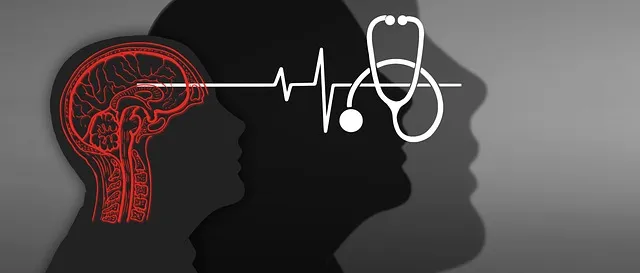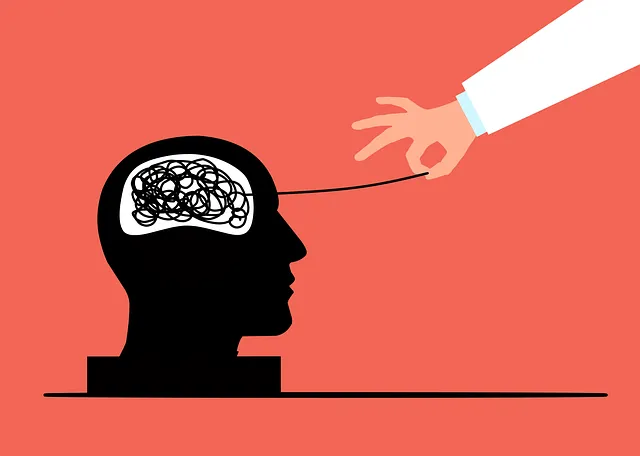In a world where mental wellness is often neglected, mental health apps, like those inspired by Arvada Kaiser Permanente's services, offer crucial personalized support for emotional well-being. These apps provide stress reduction tools, mood tracking, and mindfulness practices through CBT exercises, catering to diverse user needs from home. The ideal app combines mental health education, empathy-building strategies, self-care routines, real-time mood tracking, and secure coaching programs, fostering community engagement and reducing stigma. Development begins with market research and design, followed by coding, testing, and beta testing. Key marketing strategies include online support groups, peer mentoring, social media, influencer partnerships, and engaging interactive content.
Mental wellness apps have emerged as powerful tools in addressing the growing need for accessible, personalized support. As a testament to this trend, Arvada Kaiser Permanente’s mental health services app stands out as a case study, demonstrating the potential of digital solutions in improving mental health outcomes. This article explores the development of such apps, from identifying the need and studying successful implementations like Arvada’s, to designing key features and marketing strategies that foster user engagement.
- Understanding the Need for Mental Wellness Apps
- Arvada Kaiser Permanente Mental Health Services: A Case Study
- Key Features of an Effective Mental Health App
- Development Process: From Concept to Launch
- Marketing and User Engagement Strategies for Mental Wellness Apps
Understanding the Need for Mental Wellness Apps

In today’s fast-paced world, mental wellness is a critical aspect often overlooked in our pursuit of overall well-being. This is where mental health apps step in as valuable tools, offering accessible and personalized support to individuals seeking to enhance their emotional well-being. The demand for such applications has gained significant traction, especially with organizations like Arvada Kaiser Permanente recognizing the importance of mental health services and incorporating them into modern healthcare solutions.
The need for mental wellness apps is evident, given the rising stress levels and the impact they have on our daily lives. These apps provide an array of Stress Reduction Methods, from guided meditations to mood tracking, helping users develop healthy coping mechanisms. Furthermore, by promoting Mental Health Awareness, they encourage open conversations about emotional challenges, fostering a sense of community and support. Through various Emotional Well-being Promotion Techniques, such as cognitive behavioral therapy (CBT) exercises and mindfulness practices, these applications cater to diverse user needs, ensuring that everyone can access effective tools for managing their mental health from the comfort of their homes.
Arvada Kaiser Permanente Mental Health Services: A Case Study

Arvada Kaiser Permanente Mental Health Services stands as a commendable case study in innovative mental wellness app development and implementation. This healthcare provider has recognized the growing need for accessible, personalized mental health support, leading them to create digital solutions tailored to their community’s unique requirements. By focusing on both mental health education programs design and empathy building strategies, the app offers a comprehensive approach to well-being. Users engage in interactive modules that educate them about various mental health topics, fostering a deeper understanding of their own experiences.
Furthermore, the app facilitates self-care routine development for better mental health. It guides users through customized practices, encouraging mindfulness, healthy habits, and effective coping strategies. This holistic design not only addresses acute mental health concerns but also equips individuals with lifelong tools to maintain balance. The Arvada Kaiser Permanente model demonstrates that by combining digital innovation with empathetic support, mental wellness apps can significantly contribute to improved community mental health outcomes.
Key Features of an Effective Mental Health App

An effective mental health app should offer a comprehensive suite of features designed to support users’ well-being. Firstly, it must provide personalized content tailored to individual needs, whether through assessment tools or adaptive therapy programs. Integration with Arvada Kaiser Permanente mental health services can enhance accessibility for users seeking professional help. Additionally, real-time tracking of mood and symptoms allows for better self-awareness and progress monitoring. Features like mindfulness exercises, guided meditation, and stress management techniques cater to various preferences for relaxation and calming.
Beyond basic functionalities, a standout app might incorporate social integration for peer support, encouraging community engagement. The inclusion of a mental wellness podcast series production can enrich the user experience by offering diverse perspectives and expert insights. Similarly, developing mental wellness coaching programs within the app can facilitate personalized guidance and accountability. Effective risk management planning for mental health professionals is also crucial to ensure data security and privacy, fostering trust among users.
Development Process: From Concept to Launch

The development process of a mental wellness app begins with a clear understanding of the target audience’s needs—in this case, individuals seeking support for their emotional well-being through services similar to those offered by Arvada Kaiser Permanente. This phase involves extensive market research and user experience (UX) design to identify pain points and develop solutions that cater to specific mental health challenges. The concept is then refined into a detailed plan outlining features, functionality, and the overall user journey.
As development progresses, the app takes shape through coding and programming, integrating various tools for self-care practices, emotional healing processes, and burnout prevention. Rigorous testing ensures quality and security, addressing potential bugs and data privacy concerns. The final stages involve beta testing, where a select group provides valuable feedback, followed by launch preparations, including marketing strategies to reach the target audience in Arvada and beyond.
Marketing and User Engagement Strategies for Mental Wellness Apps

Marketing and user engagement are vital components for any successful mental wellness app, especially when competing in a crowded market. To stand out, apps should focus on building an engaged community around their platform. This can be achieved by implementing strategies that foster connections between users, such as online support groups or peer-to-peer mentoring programs, emulating the supportive environments often found within Arvada Kaiser Permanente mental health services. By creating a sense of belonging, these apps can reduce the stigma associated with mental illness and encourage consistent user participation.
Additionally, leveraging social media platforms and influencer partnerships can significantly boost app visibility and credibility. Sharing relatable content, success stories, and tips on managing mental wellness can attract users who are seeking guidance or looking for ways to implement burnout prevention strategies, a critical aspect often discussed in the context of healthcare provider well-being. Incorporating interactive features like challenges or gamification elements, while also offering educational resources, can engage users and encourage them to explore different aspects of their mental health, ultimately contributing to improved user retention.
Mental wellness apps have emerged as a powerful tool in addressing the growing need for accessible and personalized mental healthcare. As evidenced by the success of Arvada Kaiser Permanente’s mental health services, these digital solutions can significantly improve user well-being. By incorporating key features like customizable therapy programs, mindfulness exercises, and secure communication tools, developers can create effective apps. The development process involves careful planning, from conceptualization to launch, ensuring a user-centric design. Effective marketing strategies, including targeted social media campaigns and partnerships with healthcare providers, are crucial for user engagement. With the right approach, mental wellness apps have the potential to revolutionize access to care, making it easier for individuals to prioritize their mental health in today’s fast-paced world.






